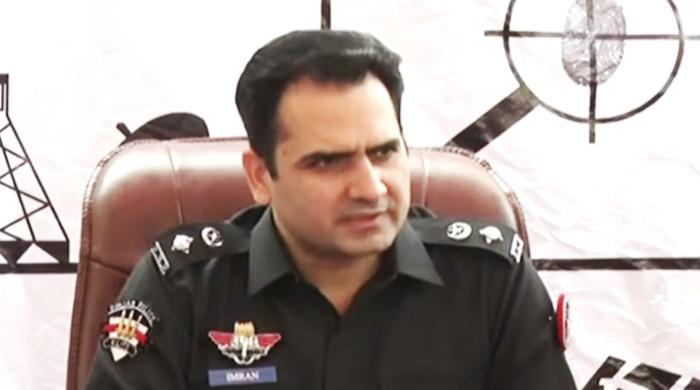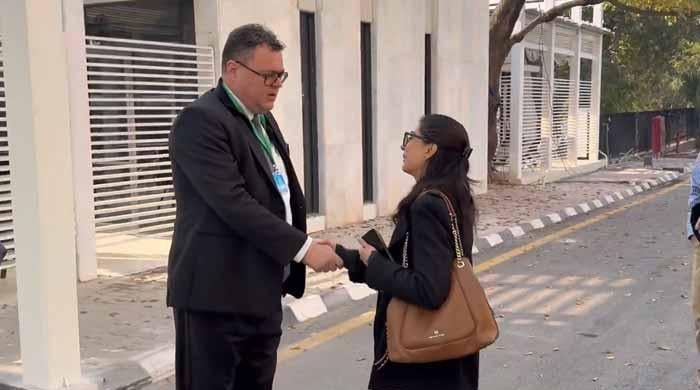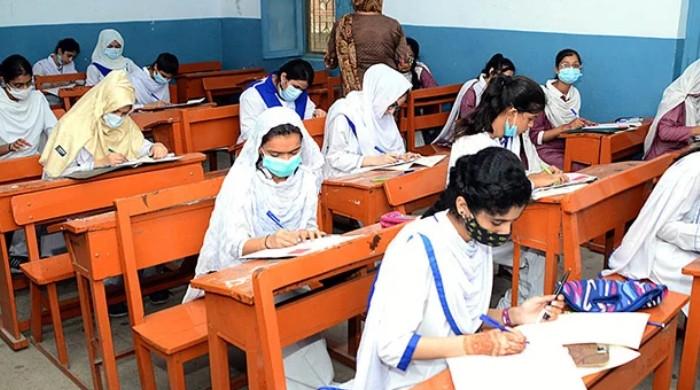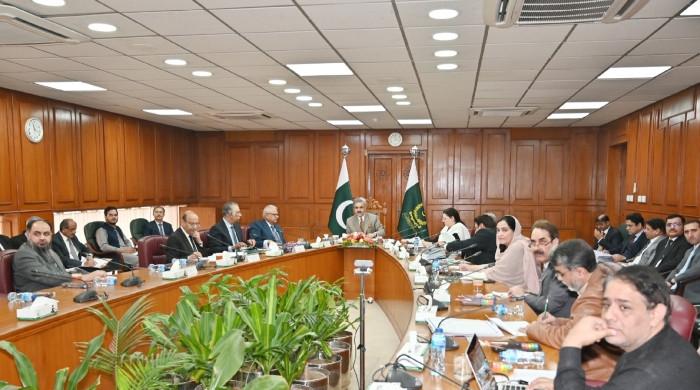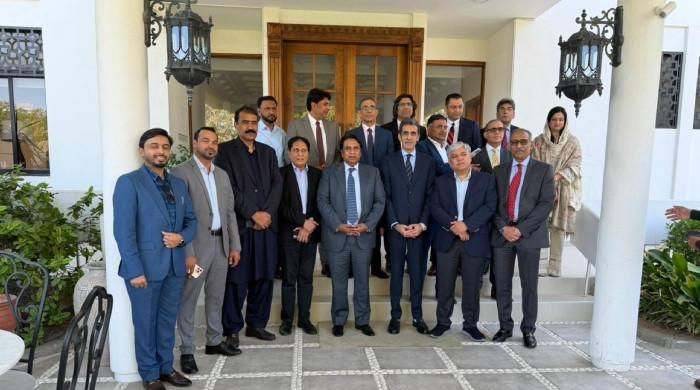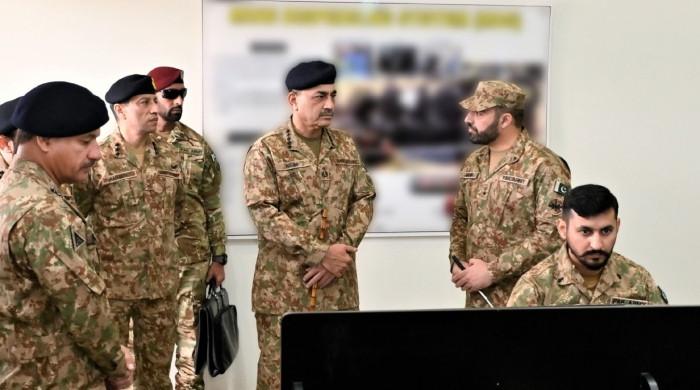Meta issues guidelines to ‘protect election integrity’ in Pakistan
"Our goal is to help people participate in civic process while combating hate speech, voter interference," Meta says
September 27, 2023
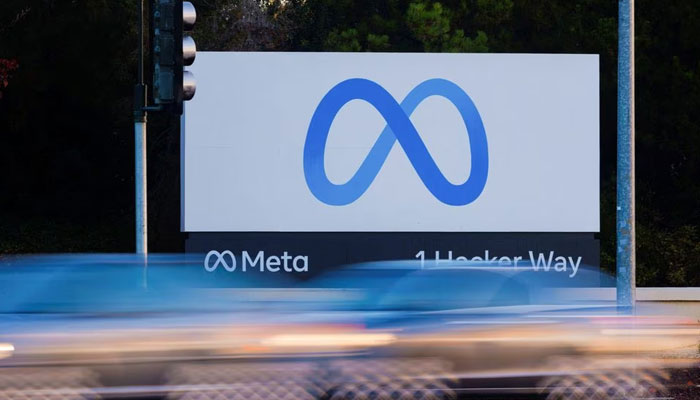
Social media giant Meta on Wednesday issued a Press Fact Sheet to address the election integrity on the platforms during the electoral process and campaigns as Pakistan inches close to the general elections.
"We take a multiple-pronged approach to election integrity at Meta: Forming election operations team, addressing harmful content, increased transparency, and partnering with local election authorities and encouraging civic participation," an official statement issued by the company stated.
Meta added that its goal is to give people a voice and help them participate in the civic process while combating "hate speech, voter interference and foreign influence".
It said that like everywhere else around the world, they have activated an election operations team in Pakistan to cover the polls.
"This team is comprised of subject matter experts from a wide range of disciplines including election integrity, misinformation, safety, human rights and cyber to monitor and respond to emerging risks in real time," it said.
As per Meta, the team includes Pakistani nationals who speak local languages and are deeply familiar with the local context.
Addressing harmful content
Meta further said that it wants people to be able to engage in political discourse online, and talk about issues that are important to them, but anything violative of the company's standards will not be allowed on the platform.
"[...] we will remove anything that violates our Community Standards as soon as we become aware of it," the communique read.
Meta also mentioned the type of content which it prohibits on the platform. This includes hate speech, violence and incitement, bullying and harassment, and certain types of misinformation including manipulated videos or “deepfakes” — or misinformation that could directly contribute to physical harm or violence.
It also listed down a number of "harmful content", which it doesn't allow,
"Our voter interference policies prohibit a wide range of harmful content types that could interfere with or suppress voting."
- Misrepresentation of the dates, locations, times and methods for voting or voter registration.
- Misrepresentation of whether a candidate is running or not.
- Misrepresentation of who can vote, qualifications for voting, whether a vote will be counted, and what information and/or materials must be provided in order to vote.
- Misrepresentation of whether a vote will be counted, or the information required to vote.
- Calls for coordinated interference that would affect an individual’s ability to participate in an election.
- Content stating that voting participation may or will result in law enforcement consequences.
- Threats of violence related to voting or the outcome of an election — or calls to monitor an election with signals of violence.
- Explicit claims that people will be infected by COVID (or another communicable disease) if they participate in the voting process.
- Offers to buy or sell votes with cash or gifts.
- Statements that advocate, provide instructions or show explicit intent to illegally participate in a voting process.
- Threats against election officials.
- Statements to bring weapons to polling places, or locations used to count votes
Increased transparency
Meta's guidelines also mentioned a "series of changes for advertisers" who want to run electoral, political and social issue ads, made on the platform over the years.
"Advertisers are now required to go through an authorisation process using government-issued photo ID, and place 'Paid for by' disclaimers on their ads. These disclaimers provide the people of Pakistan with transparency around the ads they are seeing and who is funding them - so they know who is trying to influence them," it said.
"When it comes to ads, we have a publicly available Ad Library that enables people to search for all active ads across Facebook and see when the ad was posted, which platforms it’s been posted on and who is sponsoring the ad.
"Anyone in Pakistan can search the Ads Library and details about political ads are available to search for seven years. Ads about social issues, elections or politics have an increased level of authenticity and transparency — people can see demographic data about who saw an ad and where it ran for up to seven years after the ad has stopped running. People can also report ads directly from the Ad Library.
"We give people context about Facebook Pages to help them better understand who is behind the Page," Meta added.
It further stated that the platform also provides the location of high-reach Facebook Pages and Instagram accounts on every post they share, so people have more information to help them gauge the reliability and authenticity of the content they see in their feeds.
Moreover, Meta said it has partnered with local election authorities to support election integrity.
"We have built a strong network of Trusted Partners from the civil society of Pakistan that are leading on pertinent issues, comprising of digital safety of women and children, hate speech and the larger human rights space."
One of these "Trusted Partners" includes the Pakistan Institute of Legislative Development And Transparency (Pildat), which has technical expertise in elections, and is focused on reporting harmful content through a dedicated channel, which is prioritised for review by our specialist teams.
"We have provided multiple capacity building trainings for various government agencies, election watchdogs, CSOs, vulnerable electoral candidates (including women, persons with disabilities, and those belonging to minority groups), journalists, as well as a spectrum of political parties, to inform them about Meta’s Community Standards (available in English, Urdu and Pashto), tools for political campaigning, and reporting mechanisms," it added.
Encouraging civic participation
Meta further stated that it encourages civic participation in the polls.
When it comes to supporting civic engagement and communities in Pakistan, Meta invested in resources through its digital literacy flagship program "We Think Digital", which is available in both English and Urdu languages.
It is designed to empower people to promote responsible digital citizenship and focuses particularly on enabling the safe and responsible use of Meta platforms by the youth of Pakistan.
Furthermore, Meta also supported a digital civic education campaign in collaboration with the Election Commission of Pakistan (ECP), PakVoter and Shehri Pakistan, to promote information about voter rights and address key election-related digital literacy topics such as tackling misinformation, being respectful in your communication, and staying safe online.




